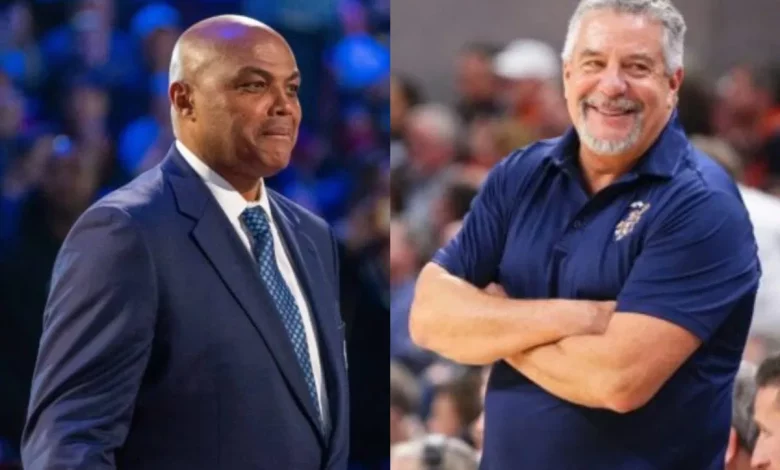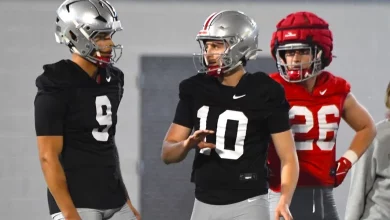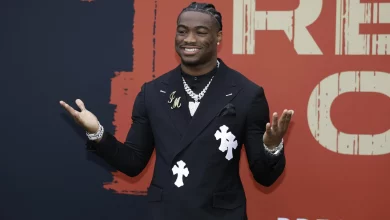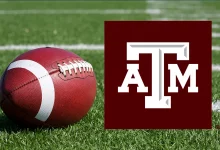Charles Barkley supports Bruce Pearl leaving Auburn to pursue a political role, praising his leadership qualities and belief in his potential to make a difference off the court.

In the world of sports, athletes and coaches often transcend their on-field or on-court achievements to become influential figures in society. Their leadership, character, and dedication to community service often inspire admiration beyond their athletic accomplishments. Recently, Charles Barkley, one of the most outspoken and respected sports commentators and former NBA stars, voiced his support for Auburn men’s basketball coach Bruce Pearl should he consider leaving coaching to pursue a political role. Barkley’s endorsement underscores the high regard in which Pearl is held, not only for his coaching acumen but also for his leadership qualities and potential to make a meaningful difference in the public sphere.
This intriguing endorsement raises important questions about the qualities that make a successful leader, the crossover between sports and politics, and the potential impact of coaches like Pearl stepping into public service roles. To understand Barkley’s perspective fully, it is essential to examine Pearl’s background, leadership attributes, and the broader conversation about athletes and coaches engaging in politics and community activism.
Bruce Pearl: A Coach of Resilience and Leadership
Bruce Pearl is widely regarded as one of college basketball’s most charismatic and effective coaches. Known for his energetic coaching style, strategic acumen, and ability to motivate players, Pearl has built a reputation as a leader both on and off the court. He’s credited with revitalizing programs, fostering team unity, and emphasizing academic success and community engagement among his players.
Since taking the helm at Auburn in 2014, Pearl has transformed the Tigers into a competitive force in the Southeastern Conference (SEC). His leadership was pivotal in guiding Auburn to its first NCAA Final Four appearance in 2019, a historic achievement that elevated the program’s national profile. Pearl’s coaching success is complemented by his outspoken personality, commitment to integrity, and dedication to mentoring young men, qualities that have endeared him to players, fans, and colleagues alike.
Beyond the basketball court, Pearl has been actively involved in community service and charity work, often using his platform to advocate for social issues, youth development, and education. His efforts demonstrate a leader who understands the importance of giving back and making a positive impact beyond athletics.
Charles Barkley’s Perspective: Leadership Beyond Sports
Charles Barkley, a Hall of Fame NBA player and current sports analyst, has long been admired for his candidness, authenticity, and advocacy for social issues. Barkley’s support for Pearl’s potential move into politics reflects his belief that Pearl embodies qualities essential for effective leadership in any arena—sports, community, or government.
In various interviews and public statements, Barkley has expressed admiration for Pearl’s resilience, integrity, and ability to connect with people from diverse backgrounds. He sees Pearl as someone who can leverage his leadership skills, charisma, and community ties to serve the greater good in a political capacity.
Barkley’s endorsement also highlights the growing recognition that the skills developed in sports—team-building, strategic thinking, resilience, public speaking, and community engagement—are highly transferable to politics. Many athletes and coaches have successfully transitioned into public service roles, using their platforms to advocate for causes, influence policy, and inspire civic engagement.
The Case for Coaches and Athletes in Politics
The idea of coaches like Bruce Pearl entering politics is not without precedent. Several former athletes and sports figures have leveraged their fame and leadership skills to pursue careers in public service, policy advocacy, or community activism.
1. Leadership Skills Transcend Sports
Coaching and playing sports require strategic thinking, decision-making under pressure, motivating others, and building cohesive teams—all valuable skills in politics and governance. Coaches, in particular, develop a keen understanding of organizational management, crisis resolution, and effective communication—traits essential for leadership roles in government.
2. Community Engagement and Social Impact
Many coaches, including Pearl, have demonstrated a sincere commitment to community service. Their visibility and influence allow them to mobilize public support for social causes, advocate for youth development, and address social inequalities. Transitioning into a political role can be a natural extension of this commitment, providing a broader platform to enact change.
3. Inspiring Civic Participation
High-profile sports figures can inspire civic engagement among their fans and communities. When coaches like Pearl step into politics, they can motivate a new generation to participate in the democratic process, emphasizing the importance of leadership, service, and community involvement.
4. Addressing Social Issues with Credibility
Sports figures often have credibility and trust within their communities, making them effective advocates for social justice, education reform, and economic development. Their personal stories of perseverance and success resonate with diverse audiences and can be powerful tools for policy advocacy.
The Potential Impact of Bruce Pearl in Politics
If Bruce Pearl were to consider a political role, what might that look like? While there is no public indication that Pearl intends to run for office, his leadership qualities suggest he could excel in several areas:
1. Community Organizer or Advocate
Pearl’s deep ties to the Auburn community and his background in mentoring young athletes could position him as a prominent advocate for youth programs, education, and social justice initiatives. His ability to connect with people and rally support would be assets in community organizing.
2. Local or State Politics
Pearl could leverage his popularity and leadership skills to serve in local or state government, advocating for policies that benefit education, sports, and youth development. His experience managing teams and navigating complex situations would serve him well in legislative or executive roles.
3. National Policy or Advocacy
With his platform, Pearl could become involved in national conversations around social issues, sports policy, or community development programs. His credibility and charisma would allow him to influence public opinion and drive initiatives aimed at positive societal change.
Barkley’s Endorsement: A Reflection of Trust and Respect
Charles Barkley’s support for Pearl’s political aspirations is rooted in a deep respect for Pearl’s character and leadership. Barkley has always spoken openly about the importance of integrity, resilience, and service—qualities he sees in Pearl.
Barkley’s endorsement also reflects a broader cultural shift where sports figures are increasingly recognized as influential voices capable of shaping public discourse. Their leadership extends beyond the field or court, inspiring civic responsibility and community engagement.
By supporting Pearl, Barkley underscores the idea that effective leaders are not confined to traditional political pathways—but can come from diverse backgrounds, including sports. Their skills in motivating others, handling pressure, and managing complex organizations make them uniquely suited to serve in public roles.
Challenges and Considerations
While the qualities that make Pearl an appealing candidate are clear, transitioning from coaching to politics involves challenges:
- Experience and Knowledge: Politics requires a nuanced understanding of policy, governance, and legislation. Coaches must acquire knowledge in these areas or partner with experienced advisors.
- Public Scrutiny: Political figures are subject to intense scrutiny and criticism. Pearl’s transparency and resilience would be tested in this arena.
- Partisan Divides: Navigating political landscapes often involves addressing partisan conflicts and building consensus—skills that differ from coaching but can be developed over time.
- Sustained Commitment: Public service demands ongoing dedication, often with less immediate gratification than coaching. Pearl would need to commit fully to this new role.
Despite these challenges, the potential benefits—renewed community engagement, advocacy for important causes, and inspiring civic participation—make the idea attractive to many supporters and leaders like Barkley.
A Tribute to Leadership and Service
Charles Barkley’s support for Bruce Pearl leaving Auburn to pursue a political role is a testament to the admiration for Pearl’s leadership qualities, resilience, and commitment to making a positive impact. It also highlights a broader recognition that skills cultivated in sports—leadership, strategic thinking, community engagement—are highly valuable in public service.
Pearl’s journey from basketball court to potentially the political arena embodies the ideal of leadership rooted in integrity, service, and community. Whether or not he chooses to pursue elected office, his example encourages current and former athletes and coaches to consider their roles as catalysts for societal change.
As society continues to seek authentic leaders who can bridge the worlds of sports, community, and politics, figures like Bruce Pearl serve as inspiring models. And with influential voices like Charles Barkley endorsing such transitions, the conversation about leadership, service, and civic responsibility in the sports community gains new momentum.
In the end, leadership is about making a difference—on the court, in the community, and in the halls of government. Bruce Pearl’s potential move into politics, supported by respected figures like Barkley, underscores a powerful message: true leaders are those committed to service, resilience, and inspiring positive change wherever they go.









